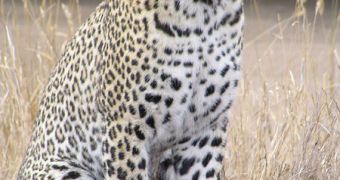Big cats will be protected by the Majete Wildlife reserve, as a part of an ample reintroduction program.
The reserve occupying 70,000 hectares will become the new home of a small population of leopards, listed as "Near Threatened" species on the IUCN Red List, because of their rapid decline, Wildlife Extra informs.
Majete started this project two months ago. Authorities from the reserve have succeeded in bringing two leopards from Kruger National Park in South Africa.
Officials say they are waiting for six other creatures. After this goal is achieved, the reserve will focus on the reintroduction of lions, an objective set for 2012.
All in all, officials state their number one priority is to restore the balance of wildlife species and “rehabilitate Majete to the condition it was in before human impact.”
Saving the big cats and offering them a new home as soon as possible is very important, mostly because these creatures often fight with lions and other big predators for food. So before thinking about reintroducing lions, authorities from the reserve have to make the leopards feel at home.
“To ensure all species flourish we had to get the timing right. Leopards and lions often conflict with each other and if lions were brought in first it would have been more difficult for the leopards to establish themselves,” explains Dorian Tilbury, field operations manager from the African Parks Majete.
This is not the only species protected through conservation strategies launched by the organization.
Since 2003, the reserve has managed to shelter 2,500 wildlife representatives, most of them considered endangered by experts and vulnerable in their own natural habitat, like black rhinos, elephants, sables and buffalo, investing $2.4 million (€1.83 million) so far.
Besides the obvious environmental benefits this project triggers, it also poses a great boost for tourism; therefore, it implies considerable financial advantages.
“The work African Parks is doing at Majete is set to have a phenomenal impact on tourism in Malawi, particularly for the safari industry,” reveals Kelly White, managing director of the Malawi Travel Marketing Consortium.

 14 DAY TRIAL //
14 DAY TRIAL //